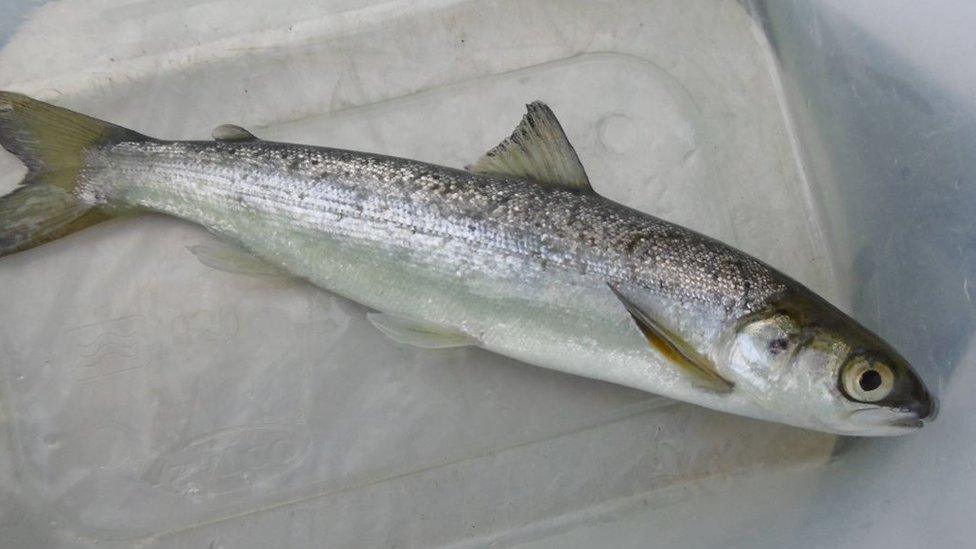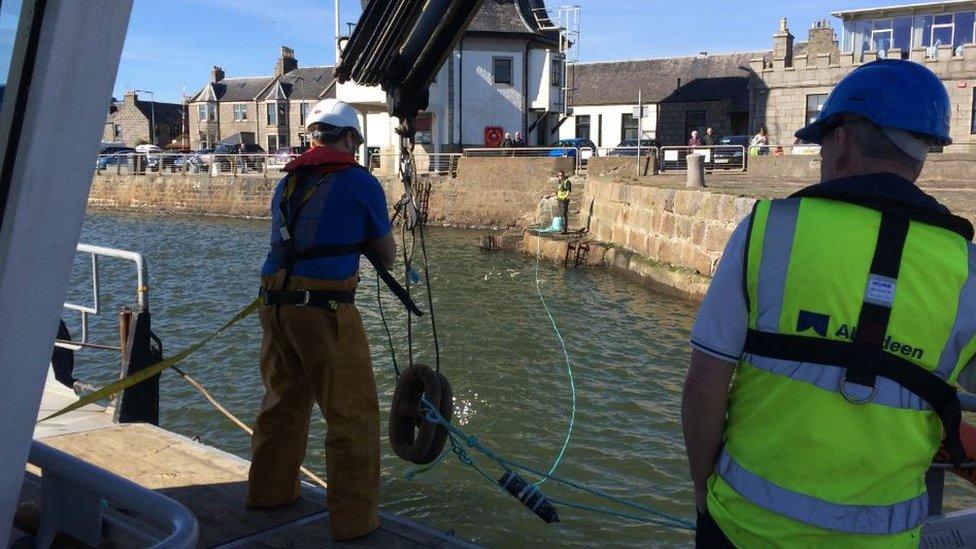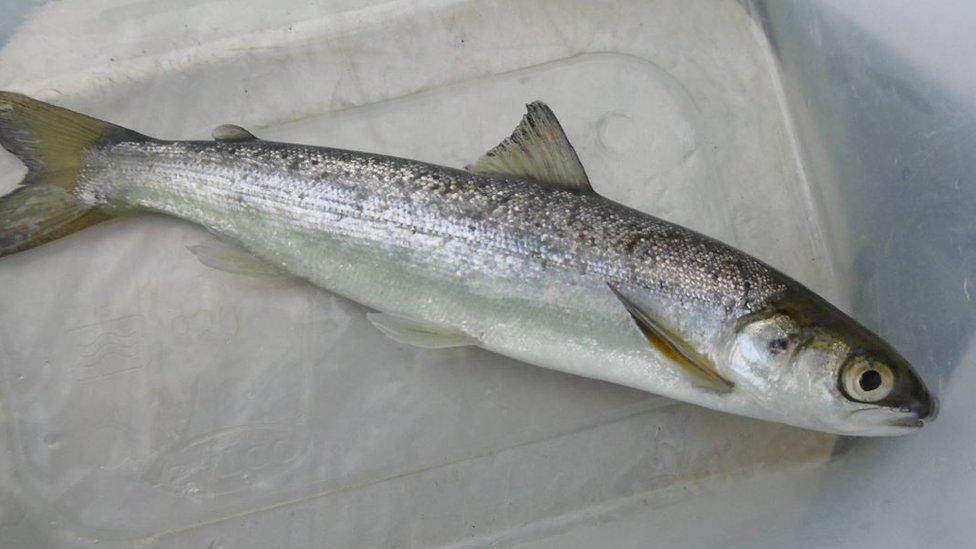Call to protect young salmon from harbour dredging
- Published

A tagged smolt from the River Dee
Fishery managers are calling for an end to dredging in Aberdeen harbour when young salmon are migrating to the sea.
They say a quarter of all tagged smolts were lost in the harbour last year when dredge boats were active.
Salmon numbers in many rivers have been experiencing long-term decline and millions is being spent trying to establish the reasons.
Aberdeen Harbour Board has insisted a link between mortality and dredging is "improbable and speculative."
Scientists have been tracking young salmon and trout on the River Dee since 2016 by inserting radio devices into the fish while they are upstream.
Listening devices are then placed at regular intervals along the river to establish the length of time it takes to reach the sea.

Researchers place listening stations in the harbour to detect the smolts
River director Dr Lorraine Hawkins said: "In the last five years we've seen lower catches on the River Dee and many other Scottish rivers.
"We've found quite a high loss rate in the river, in the order of 20% to 40%. Last year, for the first time, we saw additional mortality of smolts in the harbour, in the order of about 27%.
"It did so happen that there was maintenance work going on in the harbour at that time. It does not mean that was the cause of the losses but we would really like to work with the harbour board to look more into this.
"Smolts are so vulnerable and we just have to provide the utmost protection to make sure they get to sea safely."
Aberdeen harbour is an important port for the oil and gas industry with about 6,800 vessels using it annually.
It was built where the River Dee meets the North Sea.
'Purely speculative'
A spokesman for Aberdeen Harbour Board said: "One of the principal responsibilities for any harbour authority is to maintain its depth of the water, through dredging operations, and to ensure the safe passage of vessels.
"This has been an activity that has been carried out, relatively unchanged, in Aberdeen Harbour for hundreds of years and is an activity licensed by Marine Scotland.
"Historically, no study has suggested any link between harbour operations and salmon numbers, and the results from the first two years of this study - of which we are a funder and an active participant - have shown zero smolt mortality within the harbour section of the River Dee.
"For it to be surmised that North Harbour operations have suddenly become a contributing factor to the loss of smolts is both improbable and purely speculative."
The start of February marks the beginning of the salmon fishing season on the River Dee.
It is estimated that angling generates about £15m for the local economy and supports hundreds of jobs.
Last year calls were made for a "sensible debate" on whether some birds should be culled to protect fish stocks.
The goosander duck, in particular, are feared by anglers because of their love of salmon.
- Published1 February 2018
